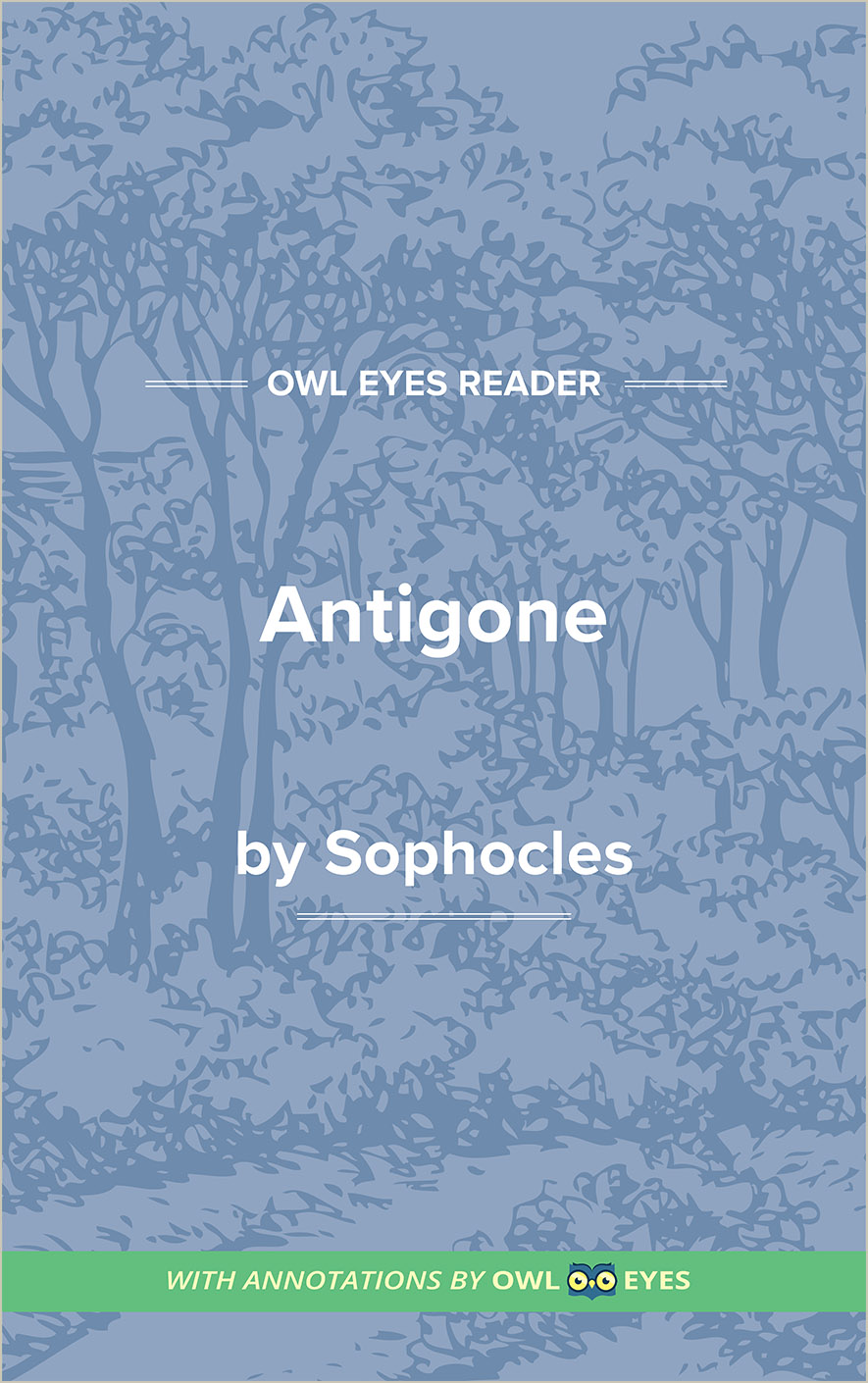Analysis Pages
Themes in Antigone
Fate and Free Will: Sophocles wants us to question if we truly make our own choices, or if our lives follow a predetermined path. Teiresias’s role as a prophet demonstrates that certain events are able to be foretold. However, his attempts to warn Creon indicate that the future can be changed or altered. Some readers may see the characters’ fatal flaws as responsible for their fates. Others may see the existence of prophecy as one sign that these characters were doomed from the outset. Sophocles does not definitively prove either reading to be true, which perhaps suggests the answer lies somewhere in the middle.
Man-made Law and Divine Law: The characters of Antigone have different opinions on who should wield ultimate power over mankind. Creon believes the laws of man should be followed no matter what. However, Antigone and Teiresias believe any man-made laws are ultimately trumped by the wishes of the gods. The gods support Antigone in her quest to bury her brother and are angry at Creon for going against their wishes. Ultimately, the narrative demonstrates that divine law is more important than the laws of men.
Themes Examples in Antigone:
Antigone
🔒"or winged bird That flying homewards taints their city's air...." See in text (Antigone)
"Justice, enacted not these human laws...." See in text (Antigone)
"Talk not of rights; thou spurn'st the due of Heaven ..." See in text (Antigone)
"Elders, the gods have righted one again Our storm-tossed ship of state, now safe in port...." See in text (Antigone)
"Wilt thou persist, though Creon has forbid? ..." See in text (Antigone)

